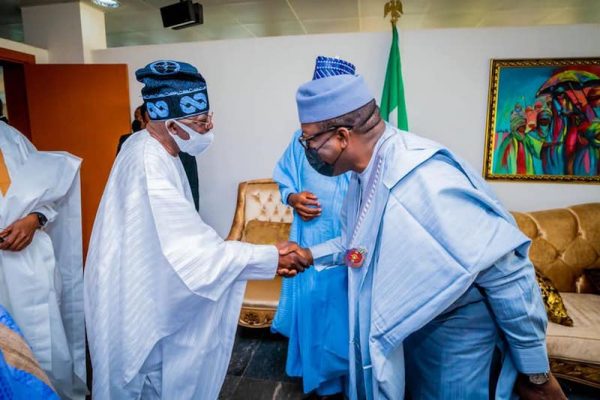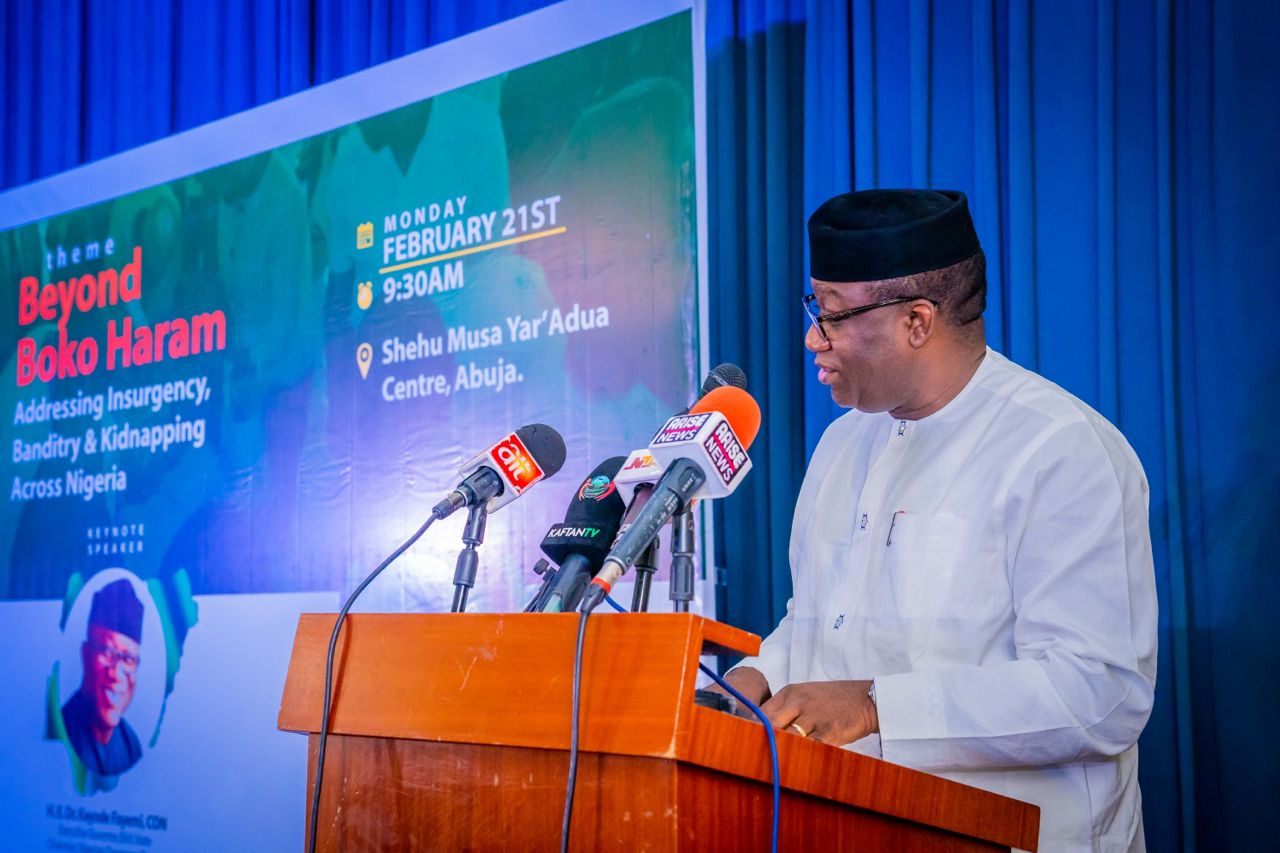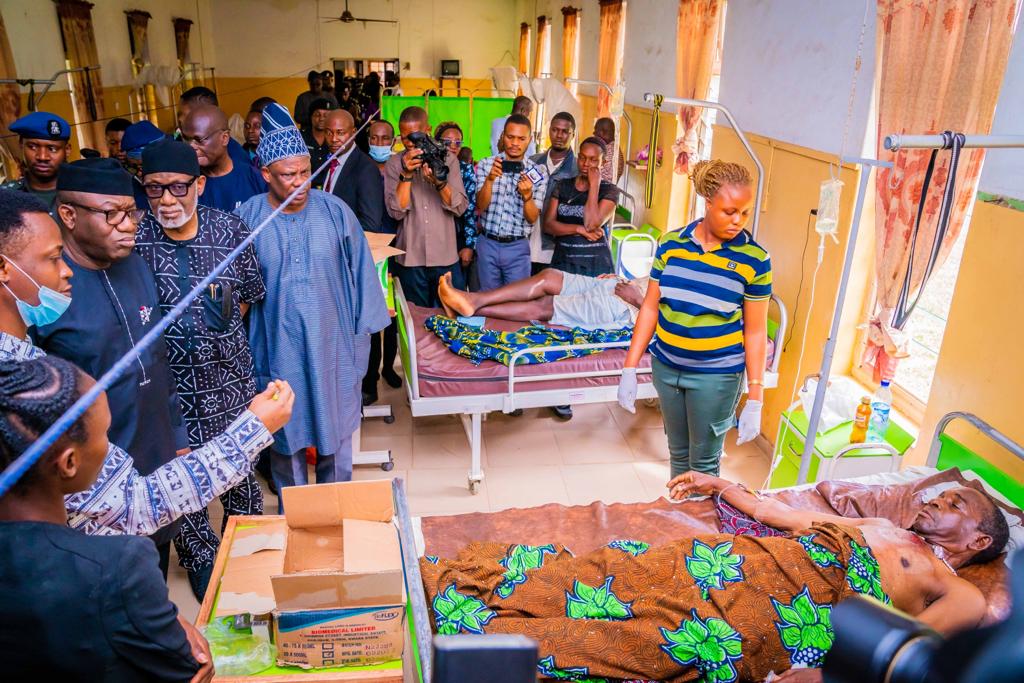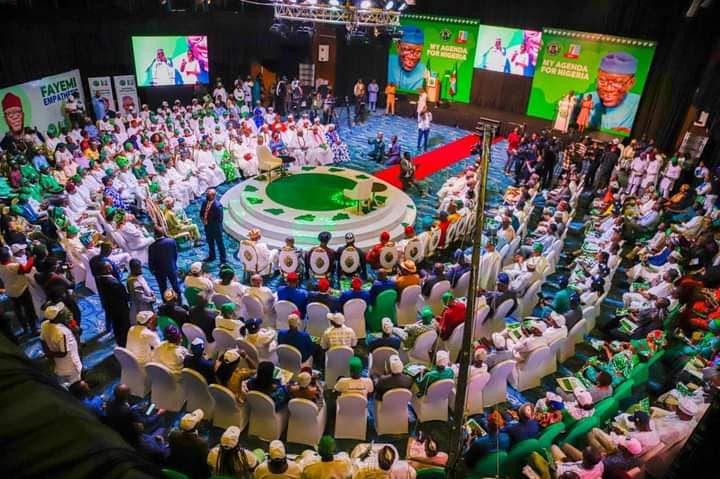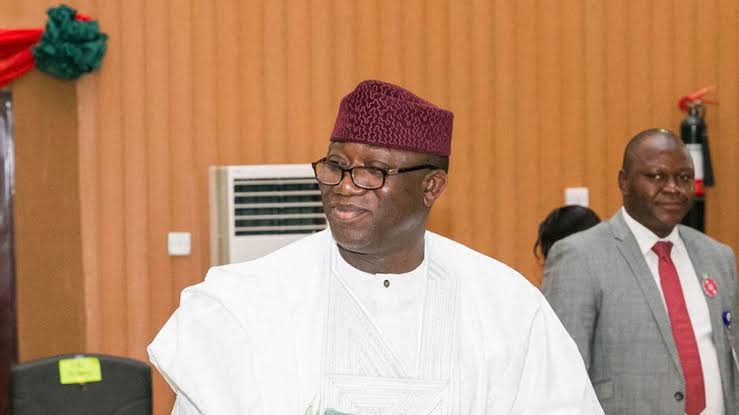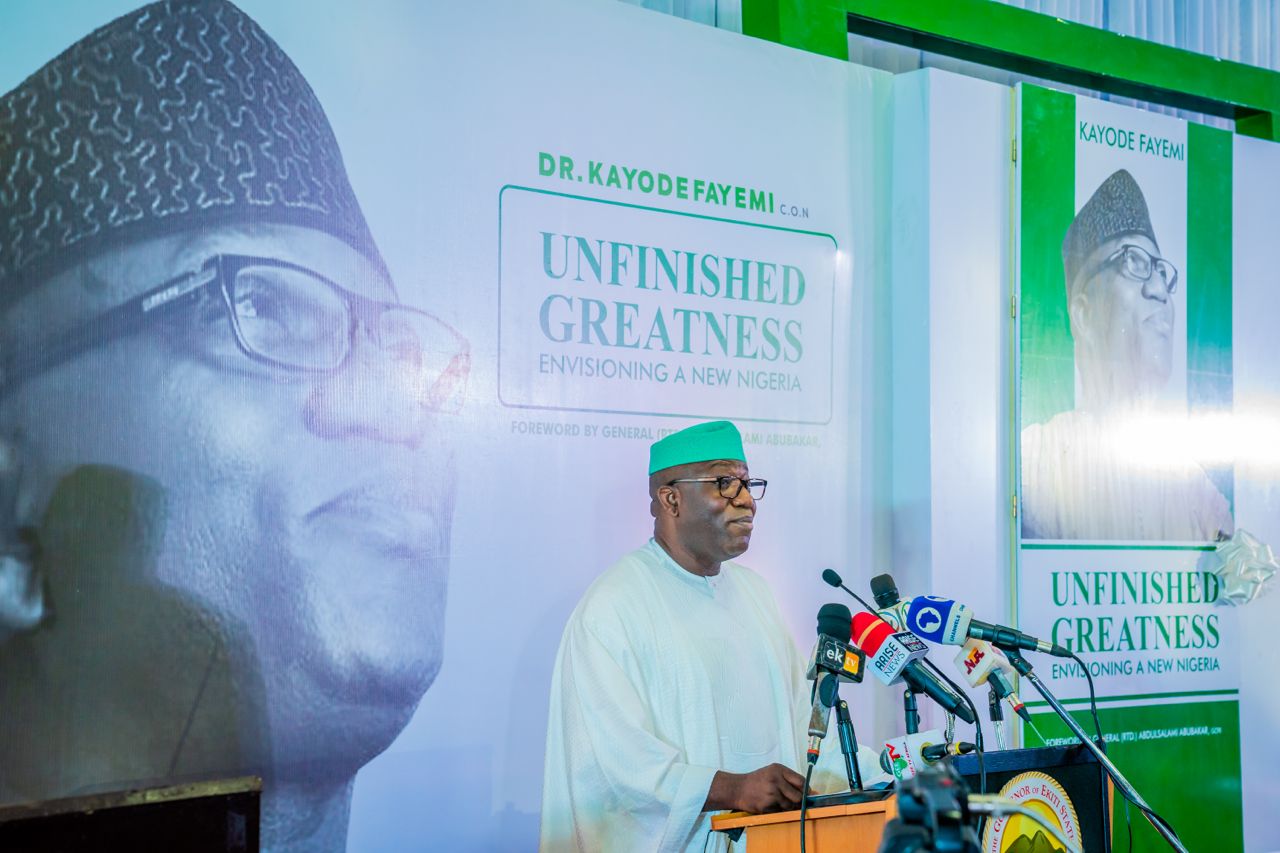Opinions
Heroes of Orin-Ekiti and Fayemi’s Responsive Leadership, By Sunday A. Aniyi
Sixty-eight years old Sunday Emmanuel Ilori who died in a night attack by gunmen in Orin-Ekiti June 29, 2019 was a rare breed of a patriotism and courage. The late Ilori retired in the public service and headed home to live for the good of Orin-Ekiti when he had the option of staying behind in the city and hang on to its allures. He was a hugely brave, dependable and resourceful man who had always been a rally point. There is no doubt he belonged in the pantheon. He was of the idyllic and pastoral age when chivalry, valour and collective bliss were at the centre of nobility.
A daring hunter with an archive of successes in hunting and expedition, Mr. Ilori was not on a game expedition on the night of his unfortunate death. He was in the warm embrace of his dear wife when a distress call came from a comrade, Mr Niyi Ajayi who had gone on hunting expedition in the night. At about midnight of Friday 29 of June, Mr. Niyi Ajayi launched a distress call somewhere around the famous Orin Farm Settlement where he had observed strange movement and presence of human occupation. He whistled coded sounds to the strangers at a defensive distance, he heard nothing from them. He suspected that they were there on a nefarious mission and evil enterprise and he, therefore, tactically withdrew to seek reinforcement from hunters in town.
As expected, the Late Ilori did not hesitate when the clarion call was made to him. He endured the inclemency of the wintery night, stoutly braved the intimidation of the night and the blinds of the fogs. He mobilised other prominent and courageous compatriots like himself who could be counted in a matter like that. The compatriots were eight in all: Messrs Niyi Ajayi, Matthew Olowoyeye, Martins Dada, Sunday alias Loccozo, Awomonyi, Ogundele Omiata, Paul and the late Emmanuel Ilori. In the dead of the night, they left the comfort of their homes and sliced into the windy night as they gently picked their way into the belly of the tick forest where suspected invaders lurked. Niyi Ajayi who stumbled on the intelligence had informed them of a safe ground to confer for brainstorming before they would launch their strategy. They met and he debriefed them. He, however, underestimated the enormity of the destructive weaponry in the armour of the enemy.
As a leader noted for his exemplary gallantry, the late Ilori mapped out the territory and assigned his men to cover up while he volunteered to match straight to where the dingy light in the camp of evil men emanated from. As he moved closer, impaired by the darkness that surrounded his path and the uncertainty of whom the strangers were, the evil marauders opened fire on him. He fought spiritedly and stood his ground but the fire power of the AK-47-bearing-killers demobilised his resolve. His comrades bade a gallant retreat and ran back when their valiant commander fell. It was a sad day in Orin-Ekiti. A hero had fallen. He died in active service to the people of Orin and indeed, Ekiti at large. The whole community was thrown into mourning. Men women, youths and the nobles wore tearful faces. The sadness was palpable as fear descended everywhere.
Although, Mr. Emmanuel Ilori was 68 years old, he was generally loved for his gallantry and valour. He was known to be courageous and bold. The whole of Orin-Ekiti was shaken to its foundation from the loss of this courageous and illustrious son. Contrary to the spins being pushed elsewhere for ignoble ends, he was not attacked in his farm, neither was he killed in the day; he and his compatriots actually went to gallantly prevent what could have become a camp of evil. It was obvious the attackers were notorious kidnappers or bandits who were looking for a safe haven to hide and carry out their evil plots. The timely intervention of these vigilant hunters saved the state of another unpleasant stories of abduction which is gradually becoming a thing of the past in Ekiti.
The governor of Ekiti State, Dr. Kayode Fayemi was deeply saddened by the unfortunate incident. He was devastated by the death of Mr. Emmanuel Ilori who was not only a notable man in Orin-Ekiti but was a prominent member of APC and a valuable supporter of the governor. So, in many ways, his death was a personal loss of an ally to the governor. As at the time of the sad incident, the Governor was just departing Ibadan, capital of Oyo state, where he and other stakeholders in the geo-political zones were deliberating on the need to cooperatively tackle the challenge of insecurity caused by kidnappers suspected to be bandits from outside the zone. He left Ibadan for another national engagements with development partners who are working in partnership with the Nigeria Governor’s Forum which he chairs. As soon as the news filtered to him, he did not wait for official briefing before he sent his Special Adviser on Security Matters and Coordinator of Rapid Response Team, Brig. Gen.Ebenezer Ogundana (rtd), himself, one of the most responsive and responsible security experts, to lead a government delegation on an on-the-stop assessment and to condole the family and the Orin-Ekiti community.
The governor came back to Ekiti on Monday morning and headed straight for Orin-Ekiti to condole the family and the entire community. The governor who fought back tears when he saw how deeply terrified and disturbed the people of the community were, assured them of their security. He expressed sadness about the occurrence and encouraged the community not to be despair. He directed the security agencies to fish out the killers and to increase their presence in the area so as to reassure the people, many of whom were apprehensive. He said more security personnel including the military would be deployed in the community and environs. He ordered that the police post hitherto in the community should be returned.
In addition, the governor pledged that the state government would take care of the burial arrangement and offer assistance where necessary. Furthermore, the governor disclosed to the admiration of the people that the Farm Settlement which was a beehive of activities during his first term as governor would soon come back to life. He stated that his recent trip to Abidjan on a financial support negotiation with African Development Bank (AfDB), partly centred on transforming the town. He disclosed that Orin-Ekiti is one of the designated Agric-Processing Zones because of the Farm Settlement in the town. He noted that the reason criminals could use the Farm Settlement as a hideout was because the place had been abandoned without any serious activities going on there. He therefore assured them that the town would soon witness a turn-around as a result of the huge investment that would come by the time the project commences. He urged them to remain calm and to cooperate with the law enforcement agencies. He advised that crime should never be ethicised as criminals are everywhere but that the people must cooperate with the security forces to fish out the hoodlums.
Even though the community was hitherto tensed and charged before the arrival of the governor, the presence of the governor defused the pervasive tension and reassured the people of their security. By the time the governor and his entourage left, there was no doubt that many of the apprehensive were a lot more relieved.
Dr Sunday A. Aniyi is a Senior Special Assistant to the Governor on Special Projects.
July 5, 2019.


